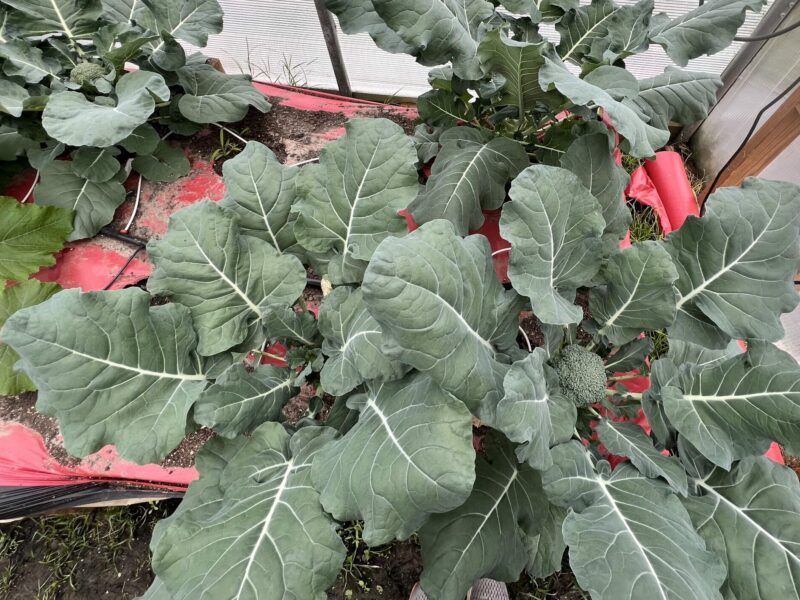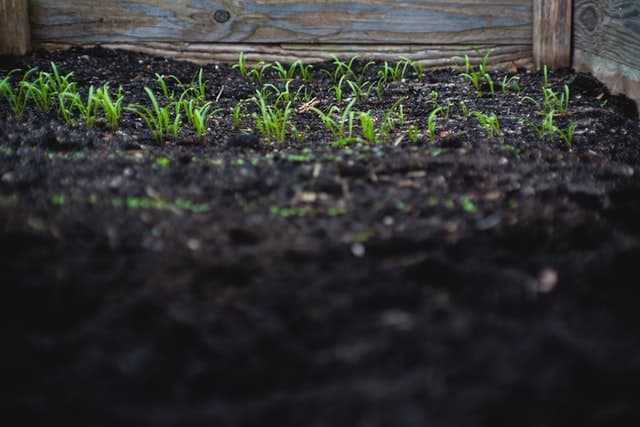Yep, aspirin can help plants grow. It’s not just about fertilizer; it boosts plant defenses and resilience too. Aspirin contains salicylic acid, which kicks in plant immunity and fights diseases.
From aiding growth to warding off pests, it’s a multitasking buddy in the garden. The effects of aspirin on plants are intricate, impacting growth and health in surprising ways.
Main Points Covered Below
- Aspirin containing salicylic acid can enhance plant growth.
- Aspirin aids in stress management for plants.
- Foliar spray application of aspirin is a practical option.
- Aspirin may increase yields in crops like tomatoes.
- Aspirin is an environmentally friendly plant care option.
Aspirins Impact on Plant Growth
How does aspirin truly impact plant growth? Although aspirin is commonly known for its pain-relieving properties in humans, its effects on plants are quite intriguing.
Aspirin contains salicylic acid (SA), a compound that can induce a response in plants similar to the way our bodies react to stress. When applied to plants, aspirin can trigger a defense mechanism called systemic acquired resistance, enhancing the plant’s ability to withstand various environmental stresses like drought, heat, and cold.
While aspirin hasn’t been proven to be a reliable rooting hormone for plants, some studies suggest that it may have potential benefits when used as a foliar spray in a vegetable garden.
Please note that high doses of aspirin can actually hinder seed germination and have limited impacts on root growth. Further research in the field of plant sciences is necessary to fully understand the long-term effects of aspirin on plant growth.
Mechanisms Behind Aspirins Effects
When exploring the mechanisms behind aspirin’s effects on plants, we uncover fascinating processes like:
- Plant growth stimulation
- Hormone regulation pathways
- Cellular stress response
These intricate mechanisms shed light on how aspirin influences the health and development of plants, offering insights into the ways in which this common medication can impact botanical life.
Understanding these pathways can’t only enhance our gardening practices but also deepen our appreciation for the intricate interplay between plants and the substances that affect them.
Plant Growth Stimulation
In understanding the mechanisms behind aspirin’s effects on plant growth stimulation, it’s important to recognize its role in boosting the immune system and enhancing resistance to pests and diseases. Salicylic acid (SA), a key component in aspirin, acts as a potent agent in promoting plant health.
When applied as an aspirin spray on your vegetable patch, it triggers systemic resistance, fortifying plants against invaders. This natural defense mechanism not only aids in warding off pests and diseases but also plays a significant part in overall plant growth stimulation.
Hormone Regulation Pathways
Exploring the impact of aspirin on plant growth involves delving into the intricate mechanisms of hormone regulation pathways. Aspirin activates the salicylic acid pathway, an important player in hormone regulation in plants.
This activation triggers defense responses within the plants, empowering them to fend off diseases and stress more effectively.
Through the salicylic acid pathway, aspirin influences gene expression, boosting plant immunity and overall growth. By modulating hormone regulation, aspirin fine-tunes plant responses to environmental cues and various physiological processes.
Understanding these mechanisms is key to optimizing aspirin’s use for promoting plant health and growth.
As we decipher the interplay of aspirin with hormone regulation pathways, we discover new possibilities to enhance plant resilience and vitality in the face of changing conditions.
Cellular Stress Response
Triggering a cellular stress response in plants, aspirin induces the production of salicylic acid, activating defense mechanisms against pathogens and stressors. Salicylic acid functions as a key signaling molecule, initiating systemic acquired resistance (SAR) to bolster plant immunity.
The mechanism set in motion by aspirin’s cellular stress response not only enhances plant defenses but also reduces oxidative damage and boosts tolerance to environmental stressors. Through its impact on gene expression, aspirin helps regulate antioxidant activity and modulate hormone levels in plants, particularly under stressful conditions.
Understanding how aspirin influences the cellular stress response provides valuable insights into leveraging its benefits for improving plant growth and health across different cultivation environments.
Aspirins Role in Disease Resistance
Salicylic acid, found in aspirin, can bolster plants’ defenses against bacterial diseases by ramping up their immunity levels.
This natural compound is like a shield that helps plants stave off infections, providing an extra layer of protection.
Aspirin’s role in enhancing disease resistance in plants showcases its potential benefits for fostering healthier and more robust greenery.
Disease Resistance Mechanisms
When considering disease resistance mechanisms in plants, aspirin plays an essential role in enhancing their immunity against bacterial infections.
- Aspirin’s active ingredient, salicylic acid, boosts plant immunity.
- Salicylic acid helps plants resist infections and enhances their natural defense mechanisms.
- Plants naturally produce salicylic acid to combat systemic diseases.
- Aspirin supplements this process, improving plant resistance to various infections.
- The use of aspirin in gardening promotes disease resistance in plants by enhancing their immune responses.
Salicylic acid, found in aspirin, is like a superhero for plants, strengthening their defenses and helping them fend off harmful bacterial diseases.
By supporting their immune system, aspirin plays a crucial role in keeping plants healthy and thriving in the face of potential threats.
Aspirin and Plant Immunity
As I investigate the relationship between aspirin and plant immunity, it becomes clear that aspirin’s role in enhancing disease resistance is essential for sustaining plant health and vitality.
Salicylic acid, a component of aspirin, plays an important role in boosting plant immunity by activating defense mechanisms against diseases. This activation includes enhancing systemic acquired resistance (SAR), a critical process for disease resistance in plants.
Aspirin helps plants combat pathogens and stress by stimulating the production of defense-related compounds. By incorporating aspirin into gardening practices, plants can improve their ability to fend off infections and strengthen their natural defenses against diseases.
The use of aspirin in plant care showcases its potential to enhance plant immunity and overall health.
Benefits of Aspirin
Exploring the benefits of aspirin in enhancing plant disease resistance reveals its significant role in fortifying plant immune systems and promoting overall health and well-being. Aspirin, specifically its salicylic acid content, aids in bolstering plants’ ability to fend off diseases and stresses.
By spraying plants with aspirin solutions, they may develop increased stress tolerance and activate systemic acquired resistance, a pivotal mechanism for combating pathogens. Scientific studies focusing on salicylic acid have consistently supported aspirin’s effectiveness in enhancing plant health and disease resistance.
While the evidence is limited, aspirin shows promising potential in boosting growth and fortifying plants against various environmental challenges.
Research Findings on Aspirin and Plants
How do scientific studies primarily approach the relationship between aspirin and plants in research on plant care? Researchers often focus on salicylic acid (SA) rather than aspirin itself when studying the effects on plants.
Limited evidence suggests that aspirin could be beneficial in disease control, particularly when applied preventatively. Additionally, aspirin might assist stressed plants in managing stress levels and potentially enhance growth outcomes.
Some studies indicate a possible increase in tomato yields with aspirin application, although further conclusive evidence is required to confirm these findings.
When considering application methods, foliar spray application of aspirin emerges as a promising option for field treatments; however, it’s essential to proceed with caution until more research is conducted.
Application Methods for Aspirin Use
Regularly mixing aspirin with water at an ideal ratio can benefit indoor plants in various ways, including promoting growth and protecting against pests. When using aspirin for gardening, consider these application methods for maximum results:
- Seed Germination: Aspirin application can expedite seed germination and fortify seeds, giving your plants a healthy start.
- Disease Resistance: By using an aspirin solution, you can help enhance disease resistance in your plants, ensuring they stay strong and vibrant.
- Aphid Protection: Applying the aspirin solution every three weeks can safeguard your plants from aphids, keeping them pest-free.
- Cut Flowers Last Longer: Adding aspirin to vase water can help cut flowers maintain their freshness and endure longer, allowing you to enjoy your floral arrangements for an extended period.
- Willow Water: Consider incorporating willow water, a natural source of salicylic acid similar to aspirin, to further enhance your plant’s growth and health.
These application methods offer a simple yet effective way to harness the benefits of aspirin for your indoor plants.
Considerations for Using Aspirin in Gardening
When considering the use of aspirin in gardening, one must carefully evaluate its potential benefits and drawbacks. Aspirin, containing salicylic acid, has shown promise in helping plants combat environmental stressors like diseases and harsh conditions.
Scientific research indicates that aspirin may promote plant growth and potentially increase yields, especially in crops such as tomatoes. However, the effectiveness of aspirin in plant care is still being studied, with a focus on direct plant spraying or soil drench applications.

